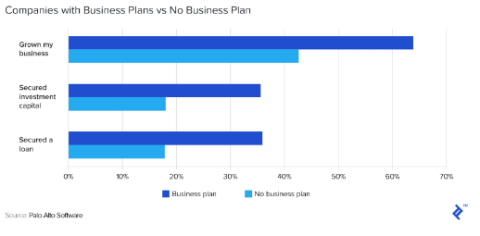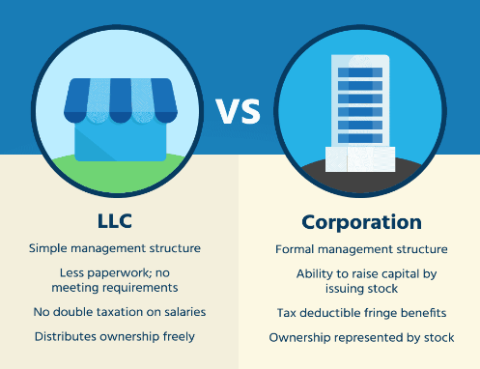Startup Struggling to Get Off the Ground? Here are 6 Key Considerations You’ll Regret Not Making Sooner

Startup Struggling to Get Off the Ground? Here are 6 Key Considerations You’ll Regret Not Making Sooner
It’s never smooth sailing for entrepreneurs. Getting a startup off the ground can feel like a major balancing act, with funding, compliance, staffing, marketing, accounting, and masses of strategizing all required before you even get started. But these are just some of the many considerations that you need to take to bring your ambitions to life.
We all know the stats. 10% of startups fail within the first year. Ultimately, 90% of startups will fail over time.
Plenty of advice is available on navigating your endeavor through those difficult early stages. But have you made all the right considerations prior to setting up your operations?
When juggling many different responsibilities, it can be easy to miss out on some essential steps to successfully launch your startup. With this in mind, let’s explore six key considerations that you may regret not making sooner in steering your startup to success:
- Never Neglect Your Business Plan
- Find Yourself a Co-Founder
- Always Insure
- Invest in Professional Advice
- Get Registered
- Make a Plan for Skill Gaps
Never Neglect Your Business Plan
Creating a coherent business plan is essential when starting a business. Although every entrepreneur will understand the value of a business plan, time constraints can compromise its quality.
Business plans demonstrate a comprehensive level of commitment and challenge you to answer some of your most difficult questions. These questions can be hard to face up to, but they will be imperative in understanding your startup's ‘how’ and ‘why’.
This means that you should never neglect your business plan and instead allocate sufficient time to creating a detailed overview of your venture that outlines your level of expertise, understanding of the market opportunity, financial requirements, and growth prospects.
The best business plans are a road map for your sustainable growth. Don’t put your plan on the back burner because you don’t have the time or energy.
Find Yourself a Co-Founder
Another consideration you may come to regret not making is finding yourself a co-founder. Many entrepreneurs believe in their vision, but you should never fear adding an industry expert who complements your ambition, skills, vision, and passion to your team.
Crucially, co-founders can help you share your workload, manage risks, and scale your startup faster. They can also provide fresh points of view, more experience to draw on, and a wider range of contacts to support your endeavor.
Although some entrepreneurs feel that adding a co-founder can cause them to lose control of their business, finding the ideal person to share your venture with can help secure faster and more sustainable growth over the long term.
Always Insure
Failing to prepare means preparing to fail, and no entrepreneur wants to lose out on their hard work through some unforeseen circumstances.
Yes, fires, water damage, burst pipes, and theft are rare, but they can be fatal to startups taking their first steps in a new industry. Other factors, like illness or unemployment, can damage your cash flow and productivity.
For this reason, adding health insurance and accident insurance demands a significant level of consideration.
If you’re bootstrapping your startup, adding insurance for unlikely events could seem like a waste, but if you’re planning to grow your business from scratch on a long-term basis, then adverse circumstances are likely to happen sooner or later.
Invest in Professional Advice
When cash is scarce, cutting corners to save costs can be tempting. For many entrepreneurs, paying for professional advice can seem like an unwelcome expense, but by gaining valuable legal, structuring, and taxation advice, you can position your startup to ensure greater cash flow margins later on.
Paying for professional advice is a key time-saving investment. By gaining the right insights, you can make intelligent decisions that complement your business plan and mission statement. It can also be an attractive quality for investors when it comes to securing funding.
Get Registered
Once you’ve set up your ownership structure, it’s time to register your company. This is an essential step towards compliance and overcoming legal hurdles.
With the right guidance, it can be easy to register a company. The great thing about getting registered is that it can inadvertently act as a strong marketing tactic. In an age of heightened customer suspicion, seeing an LLC or © after a business name can be a great means of leveraging trust.
Make a Plan for Skill Gaps
No startup is perfect, but the most successful endeavors work to bridge any lingering skill gaps as efficiently as possible.
Be sure to research your industry, target audience, and how to secure sales in your market. By taking a full and frank view of what you do and do not know, you can map out your startup skill gaps and build a team, or hire mentors, to bridge these shortfalls.
The best entrepreneurs have plenty of confidence, but being honest with yourself about what you can and can’t do is the first step to creating an operationally water-tight company. Building a plan to either develop more skills, outsource, or make strategic hires can be one of the most important steps you take on your journey.
Building a Seamless Startup Process
Launching a startup is always difficult. It takes time, effort, and lots of money to stand a chance of success.
Building a sustainable business also requires decisive leadership, and the ability to understand where to allocate your efforts and resources for the best results.
When getting your startup off the ground feels like a balancing act, key considerations can be missed. By remembering some of your essential processes, your startup can have the best chance of becoming one of the 10% of endeavors that become successful.

